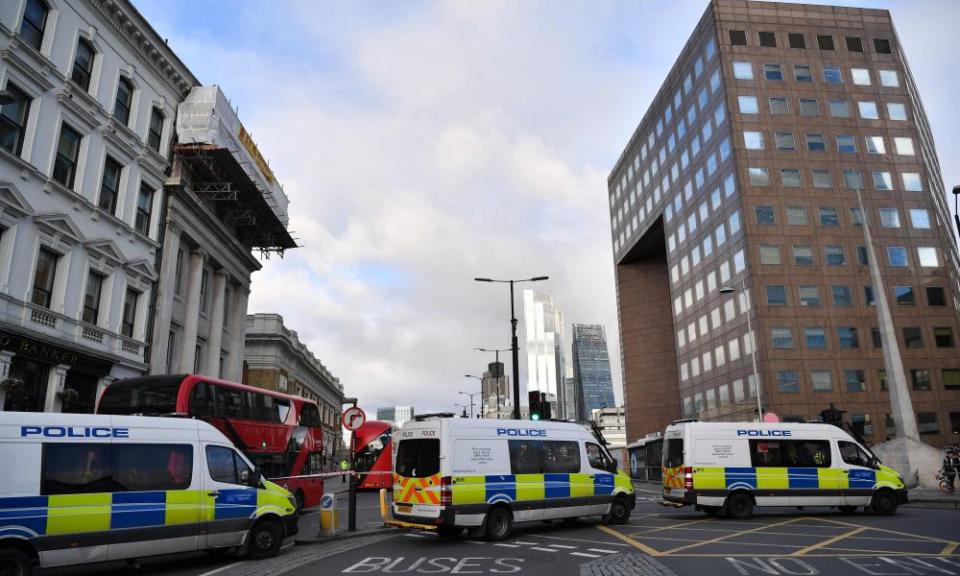Security services and police to face questions over London Bridge attacker

The security services and police are to face questions over whether they missed the chance to stop a convicted terrorist out on licence with an electronic tag who stabbed two people to death.
On Monday, the inquests open into the deaths of Jack Merritt, 25, and Saskia Jones, 23, who were killed in the November 2019 attack at Fishmongers hall, near London Bridge at a prisoner rehabilitation conference.
The event was to mark the fifth anniversary of Learning Together, an educational rehabilitation initiative run by the Cambridge Institute of Criminology, for which Merritt was a course coordinator and Jones was a volunteer.
One of the course’s previous participants, Usman Khan, who had pretended to be rehabilitated after a terror conviction, produced two knives and stabbed five people, inflicting fatal wounds on Merritt and Jones.
Several attendees armed with a narwhal tusk and fire extinguisher fought back and drove Khan out on to London Bridge where he was shot dead by police.
At the time Khan was under “active investigation” by counter-terrorism officials. He had been convicted in 2012 of plotting to bomb the London Stock Exchange and freed halfway through his sentence in December 2018.
Both MI5 and police suspected he had not been rehabilitated and posed a danger after his release. Khan was assessed as a priority three suspect by MI5, the same as other prisoners released after being imprisoned for serious terrorism offences.
The 28-year-old was on MI5’s list of 3,000 suspects under active investigation and “trip wires” were supposedly in place if he showed alarming behaviour.
Khan is believed to have traveled from his bedsit in Stafford, where he lived alone, and sat through the conference until just after 1.50pm. Then he went to the bathroom with a bag, and returned clad in a fake suicide vest and with knives strapped to his wrists. Investigators believe he acted alone.
Judge Mark Lucraft QC will preside over the inquests in central London.
MI5 will give evidence as will police, a theological mentor to Khan, and those involved with him after his release from prison.
At a pre-inquest hearing in March, Jonathan Hough, counsel to the inquests, said the attack might have been preventable: “In theory it could have been prevented in one of two ways: if Usman Khan’s preparations for the attack had somehow been identified in advance, or if further information had been gathered or a higher assessment of risk made which would have caused him to be prevented from going to the Learning Together event, or perhaps accompanied to that event.
“For instance, there had been prison intelligence from shortly before Khan’s release in late 2018 that he intended to return to terrorism. MI5 acknowledged that there was a risk in this regard. Then shortly before the attack a ... meeting of police and MI5 on 18 November noted that he had become withdrawn and might re-engage in extremist activity.”
Dave Merritt, father of Jack, told the Observer in November of his feelings towards his son’s murderer: “I do feel angry. Though it’s hard to feel angry with someone who is dead. I just think it’s a complete and utter waste. Of his life, but also to take the lives of two exceptional people who were doing good. You know, that’s the thing about Jack – and Saskia – they were the definition of ‘do-gooders’. That’s one of the things that made them special.”

 Yahoo Finance
Yahoo Finance 